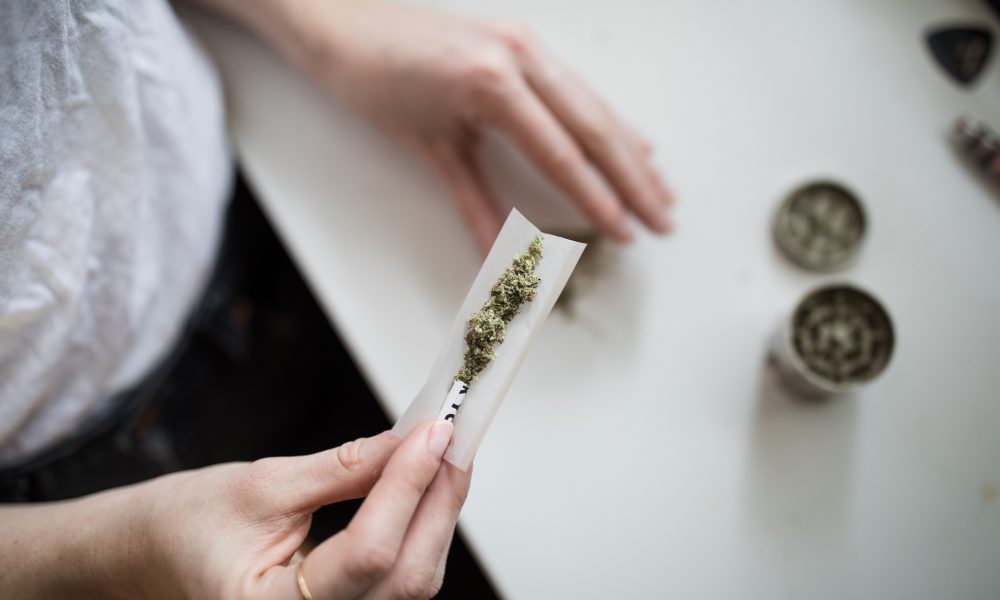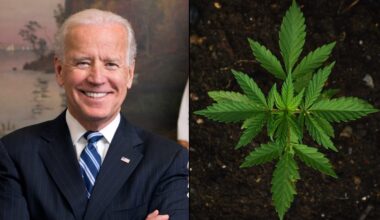Washington, D.C. lawmakers on Tuesday advanced a bill to ban most workplaces from firing or otherwise punishing employees for marijuana use, setting the measure up for final passage early next month.
Councilmember Trayon White (D) is sponsoring the legislation, which was slightly amended before being unanimously approved by the Committee of the Whole, which is comprised of all 13 members of the full Council. It previously moved through the Labor & Workforce Development Committee last month.
The Cannabis Employment Protections Amendment Act would expand on previous legislation the D.C. Council approved to protect local government employees against workplace discrimination due to their use of medical cannabis.
Councilmember Elissa Silverman (I) said at the Committee of the Whole hearing on Tuesday that there’s a “disconnect between the District legalization of cannabis and its employment laws.”
“Even though cannabis is legal, workers can be fired or disciplined for using it in their personal time and without any impact on their work,” she said.
To that end, the legislation that local lawmakers are advancing would “prohibit employers from firing, failing to hire, or taking other personnel actions against an individual for use of cannabis, participating in the medical cannabis program, or failure to pass an employer-required or requested cannabis drug test, unless the position is designated safety sensitive or for other enumerated reasons.”
Police, safety-sensitive construction workers and people with jobs that require a commercial driver’s license or work with childcare and patients and positions “with the potential to significantly impact the health or safety of employees or members of the public” could still be fired or punished for cannabis use, however.
—
Marijuana Moment is already tracking more than 1,000 cannabis, psychedelics and drug policy bills in state legislatures and Congress this year. Patreon supporters pledging at least $25/month get access to our interactive maps, charts and hearing calendar so they don’t miss any developments.![]()
Learn more about our marijuana bill tracker and become a supporter on Patreon to get access.
—
There are also exceptions for workers contracted by the federal Department of Transportation (DOT).
“Due to the rapidly changing status of cannabis and the lack of evidence supporting drug testing laws, jurisdictions across the country are considering or have adopted laws to protect lawful cannabis use,” a report attached to the bill says.
“Currently, the District prohibits pre-employment drug testing for cannabis before a conditional job offer and prohibits adverse actions against District employees who are medical cannabis patients,” it continues. “Employees in the private sector do not have such protections despite adult use being legal in the District. This bill will change that.”
Some amendments were adopted by the Committee of the Whole, including one that requires, rather that authorizes, agencies to enter into an memorandum of agreement over the policy and another that mandates that the mayor’s regulations on the issue to undergo a Council review. Other changes were technical in nature.
The bill as amended has now been placed on the consent calendar for the full Council to consider early next month.
This latest development is consistent with moves in other states to loosen workplace policies for marijuana as more states move to legalization.
For example, following the enactment of adult-use legalization in New York, the state Department of Labor announced a policy change barring most employers from drug testing certain workers for marijuana.
As Missouri lawmakers work to advance marijuana legalization in the state, the St. Louis County Council approved a bill last month to ban pre-employment and random drug testing for cannabis for most county workers.
The Kansas City, Missouri Council also voted last year to enact a similar policy drug testing policy change for cannabis.
A nationwide labor report recently found that drug testing rates at U.S. workplaces have fallen considerably over the past quarter-century, as states began ending marijuana prohibition. The government-collected data also offered a glance at what types of industries are screening workers for drugs the most and the least.
In a setback for advocates, a House-passed bill in Illinois concerning workplace protections for employees who use cannabis off-the-job recently stalled in the Senate before the chamber adjourned for the session.
A Colorado House committee also rejected a bill that would have provided protections for workers in that state who use marijuana off the job. As introduced, the measure also would have allowed medical cannabis patients to use marijuana at work, although later amendments scaled back those protections.
Meanwhile in D.C., lawmakers recently rejected a measure to effectively circumvent a congressional ban on locally legalizing adult-use marijuana sales by allowing adults 21 and older to “self-certify” themselves as medical cannabis patients without needing a doctor’s recommendation.
The patient self-certification provision of the measure would have represented a significant expansion of another piece of legislation enacted into law this year that allows people 65 and older to self-certify for medical cannabis without a doctor’s recommendation.
NYC Mayor Says City Will Seek Federal ‘Waiver’ For Marijuana Greenhouses On Public Housing Rooftops
Medical Disclaimer:
The information provided in these blog posts is intended for general informational and educational purposes only. It is not a substitute for professional medical advice, diagnosis, or treatment. Always seek the advice of your physician or other qualified healthcare provider with any questions you may have regarding a medical condition. The use of any information provided in these blog posts is solely at your own risk. The authors and the website do not recommend or endorse any specific products, treatments, or procedures mentioned. Reliance on any information in these blog posts is solely at your own discretion.






